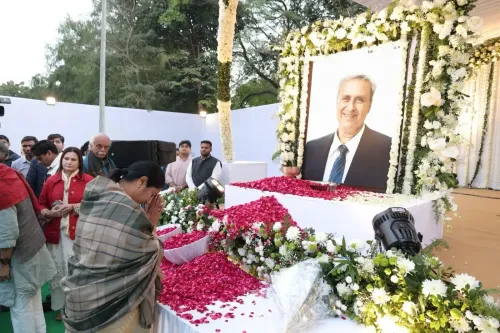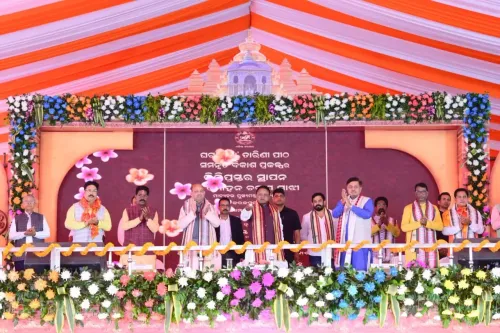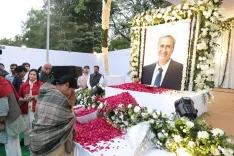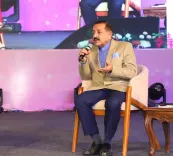Supreme Court: Compliance with Special Enactment Required for Bail Approval
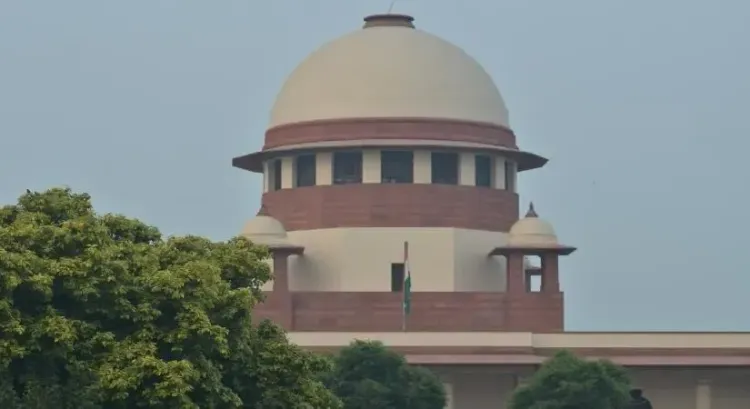
New Delhi, Jan 3 (NationPress) The Supreme Court has determined that any embargo established by a specific provision for bail must be met to grant bail under a special enactment.
"When there is an embargo established by a specific provision within a special enactment regarding the granting of bail for offences allegedly committed thereunder, the authority to grant bail must be contingent upon the fulfillment of the conditions stated in such specific provision," stated a bench comprised of Justices C.T. Ravi Kumar and Sanjay Karol.
The Justice Ravi Kumar-led Bench was reviewing a special leave petition aimed at revoking the bail granted to the respondents, arguing that the bail order was akin to a mini-trial.
A prolonged civil dispute existed between the parties, culminating in the accused fatally shooting the victim, who was buying fruits, with a homemade pistol.
Initially, a charge sheet was presented against the accused without allegations of offences under MCOCA (Maharashtra Control of Organized Crime Act, 1999). However, in April 2021, a supplementary charge sheet under MCOCA was filed against the accused, asserting that they were part of an 'organised crime syndicate' and that they conspired to kill the victim for illegal profits.
Before the apex court, the accused argued that they were not initially charged under MCOCA; these charges were later included through a supplementary report, ostensibly to ensure the denial of bail.
They claimed that the bail conditions were sufficient and appropriate to guarantee that the accused would not evade justice and would face trial.
In its ruling, the Supreme Court stated: “There can be no doubt regarding the fact that since MCOCA is applicable in this case, the accused could not seek bail at their discretion under Section 439, Cr.P.C., given the constraints imposed by Section 21(4) of MCOCA.”
The Supreme Court noted that the public prosecutor opposed the request for bail, urging the Bombay High Court to consider the implications of Section 21(4) of MCOCA.
“Indeed, the contested judgment indicates that this argument was acknowledged by the High Court. Nonetheless, it is evident that the impugned order did not reflect the necessary considerations related to offences under MCOCA,” the apex court stated.
It further stated that the impugned order revealed that bail was granted to the accused not on the basis of a violation of fundamental rights, but rather the High Court evaluated the adequacy of the evidence against them on record.
Furthermore, the apex court remarked that matters of admissibility and evidentiary value are to be determined during the trial and are not relevant at the bail stage.
“The High Court overstepped its bounds by evaluating the sufficiency and correctness of the prosecution's case when issuing the impugned order, rather than focusing on whether the stringent conditions for granting bail under MCOCA were satisfied,” it concluded.
Annulled the impugned bail order, the Supreme Court instructed that the bail matter be returned to the Bombay High Court for new evaluation.
"In this case, the parties are to appear before the High Court on 29.01.2025, and the High Court may set a hearing date for this application. Given that this crime occurred in 2020, the High Court is encouraged to expedite the resolution of the application, ideally within one month of receiving this order,” it directed.


